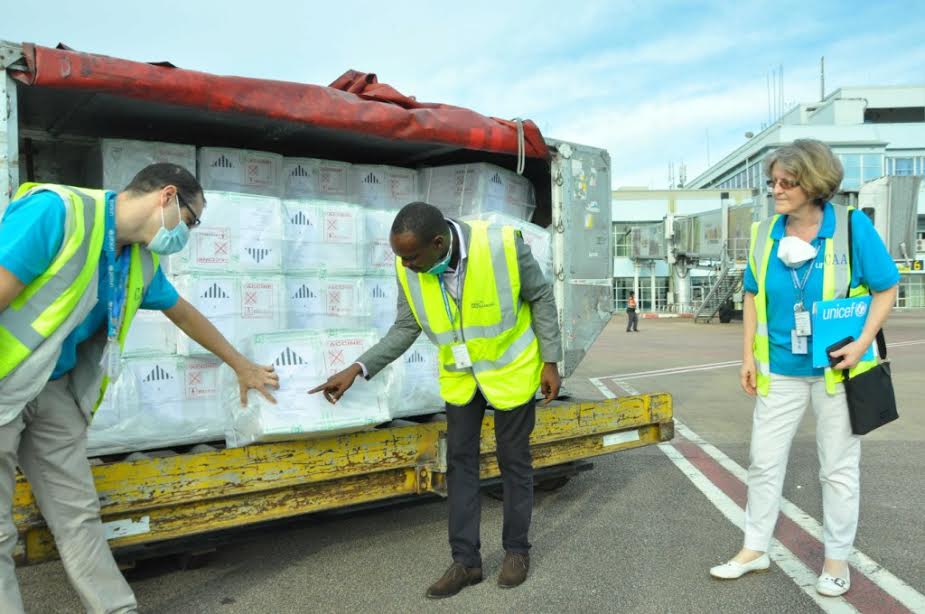Uganda receives over 3.8 million polio vaccine doses

Uganda on Friday received over 3.8 million doses of bivalent oral polio vaccine to support ongoing routine immunization services throughout the country.
United Nations Children’s Fund (UNICEF) and the Ugandan government in a joint statement issued here said the doses, which will last for six months, will be administered to about 900,000 children below the age of one year. A child receives three doses of polio vaccines before they celebrate their first birthday, according to the children’s agency.
According to the statement, the vaccines were procured by UNICEF, with funding from the Ugandan government.
The statement said 810,500 doses of Pentavalent Vaccines also procured by UNICEF with funding from Gavi, the Vaccine Alliance, are expected to arrive in the country on April 28.
Pentavalent Vaccine is a combination of five vaccines in one: diphtheria, tetanus, whooping cough, hepatitis B and Haemophilus influenza type b (the bacteria that causes meningitis, pneumonia and otitis) and will also be administered to children under the age of one.
Alfred Driwale, program manager Uganda National Expanded Program on Immunization urged parents to take their children for their routine immunization while ensuring they follow ministry of health guidelines to prevent themselves against COVID-19.
“We want to encourage parents and guardians to take their children for routine immunization at any nearby health center. The vaccines are available, and the health workers are ready to immunize children,” Driwale said.
Noreen Prendiville, UNICEF Deputy Representative in Uganda said the agency is committed to continue supporting the country to deliver the much-needed life-saving services including protecting children from vaccine-preventable diseases especially during pandemics.
“As scientists work hard to accelerate vaccine development for COVID-19, we must also ensure children are protected against those diseases for which vaccines already exist, including polio, measles, rubella and tuberculosis,” Prendiville said.
“Immunization is one of the most effective public health interventions and is key to end vaccine-preventable child deaths and giving children a chance to grow up healthy and reach their full potential,” she added. (Xinhua)










